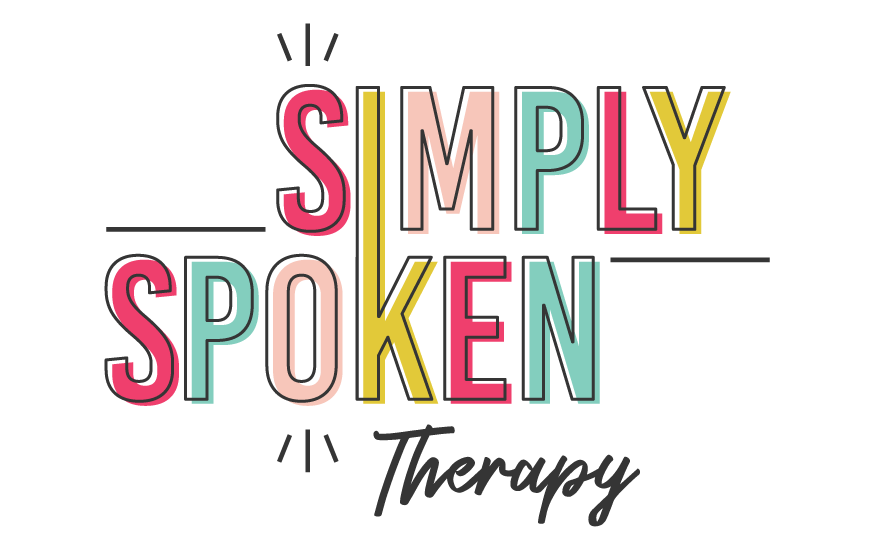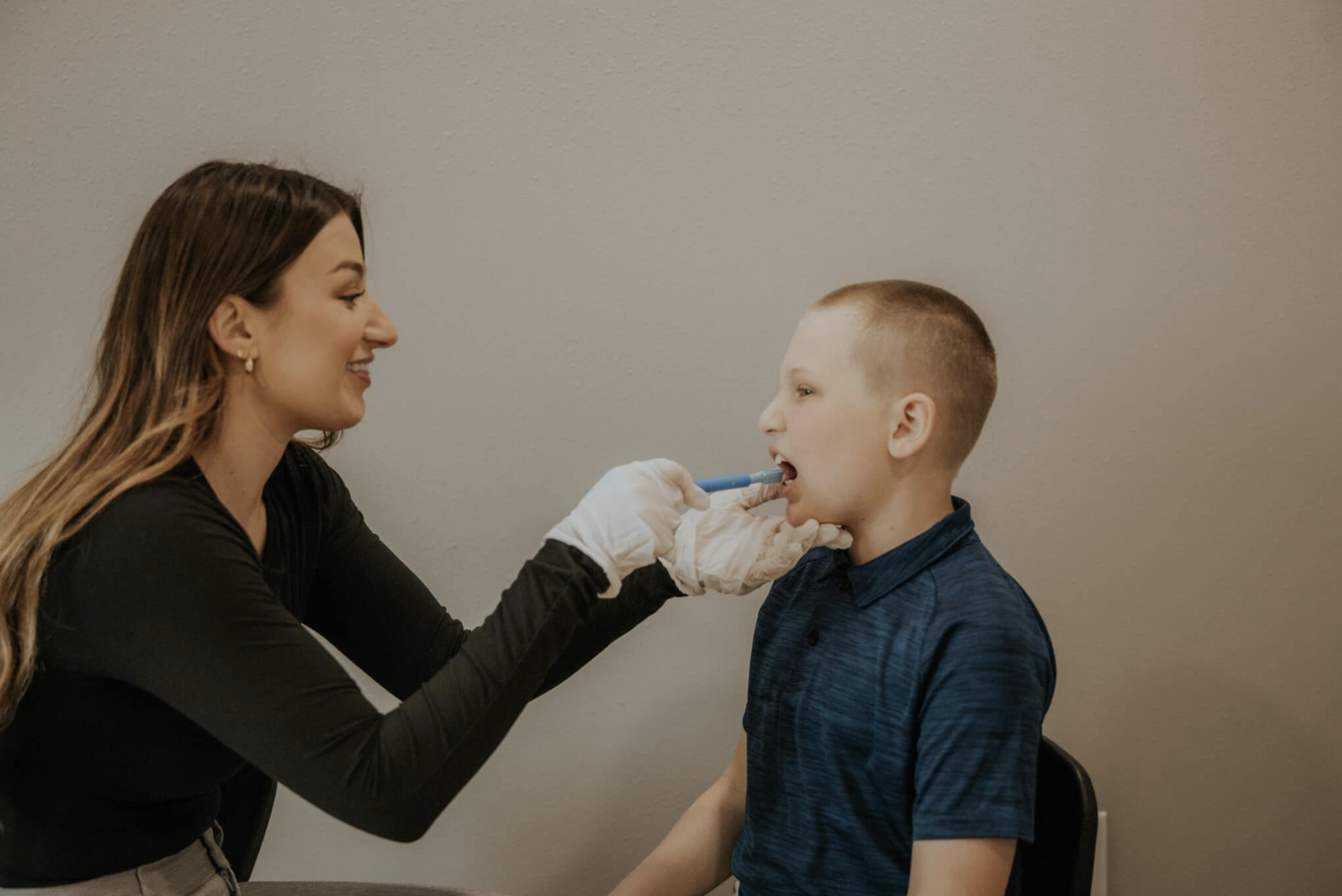
SERVICES
HOW WE CAN HELP
Below you will find some of our areas of speciality. We find that our clients have the best outcomes when paired with a therapist who has the most experience treating your child’s specific speech and language disorder.
Not sure who would be the best fit? Give us a call! We are always happy to help guide the process.
Speech Sounds/ ArticulatioN
We get it, you’re tired of other people interrupting your child, and you HATE that you still have to translate for him day after day. You worry that he won’t be able to make friends at school or communicate to his teachers how amazingly smart and funny he is. It breaks your heart when kids walk away or, worse yet, ask YOU what he said. You wonder if they will ever be able to tell you what he did at school that day.
Rest easy; we can help. After an evaluation to determine what type of speech sound disorder it is (yes, there are many types), we can put some specific and highly personalized goals into action. Your child will learn how to say sounds in a new way so he can make friends, tell you what he needs, and share moments with you without any stress or worry.
SOCIAL SKILLS
Difficulties with social skills can be hard to pinpoint in some kids. You know he has his own way of doing things, but he doesn’t seem to understand that other kids see his actions as a little strange. He doesn’t get invited to birthday parties, does not have a ton of friends, and prefers to do what he wants without compromising with others. He is smart, so he doesn’t get much help in school. You want him to get along with his peers, but explaining how to act in social situations is hard. Your other kids just understood that you have to wait in line at the store, that not everyone wants to talk about the newest video game, making eye contact is important, and having a meltdown because he got a ham sandwich instead of turkey is not appropriate. Will these difficulties hold him back? Will he struggle to make real meaningful connections?
Difficulties with social skills are complex. Many of the challenges these kids face aren’t black and white; they reside in the gray areas. Many social skills are not explicitly taught, which can be confusing. At Simply Spoken Therapy, we work together to help your child understand perspective-taking, how to be part of a group, the importance of hidden rules, and how reactions should match the size of the problem
FEEDING
Do you dread meal time with your kids? Is it a hassle getting your child to sit at the table for a meal? And forget about trying new foods! Most people say, “They’re kids, it’s normal for them to be picky!” But how picky is TOO picky?
Sometimes, being a picky eater can be related to a motor or sensory issue. When kids have motor or sensory challenges, it can impact how much they eat, how safely they eat, and what they are willing to eat. We want kids to be able to eat more than just chicken nuggets and crackers, right?! Motor and sensory issues could mean your child has a hard time controlling the food in their mouth, awareness of how much food is in their mouth, and sensitivities to different consistencies, textures, and temperatures. Some children may refuse to eat or present with more behaviors at mealtime.
Does this raise an eyebrow and remind you of your child? If so, we may be able to help make mealtime more enjoyable for you and your family. After all, who doesn’t love to eat and want the ability to socialize and relax with their family members at the dinner table?
LATE-TALKING TODDLERS
Your pediatrician said he should have two-word phrases by age two, but your little one just isn’t there yet. You know that he understands everything you say and is smart, funny, and creative, but why isn’t he talking yet? During playdates or at school, you find yourself counting how many words kids his age are using and wondering what those parents are doing differently. Most of the time, you can anticipate exactly what he needs, but not always. In those moments, there are tears, screaming, frustration, and you wish that he could just tell you what he wants. Your friends tell you not to worry and give him time, but what if you are just wasting time?
Having a late-talking toddler can be frustrating for both parents AND your child. We know how important it is to meet your child where they are and put some goals in place that challenge them to use more verbalizations while allowing them to feel successful.
Language-Based Learning Disabilities
How hard should school be? Your child does okay, but not great, and he is working SO hard to be just “okay”. Many of my clients say homework is a struggle, and they spend hours arguing over it. Kids with language-based learning issues will often say their favorite part of school is art, music, and gym class, usually because reading and math are hard. Maybe they have a hard time understanding the directions in a fast-paced classroom setting, or they can’t quite come up with the right word and get stuck with that “tip of the tongue” moment. Some kids even struggle with organizing their thoughts in an efficient and concise way, verbally or in writing. You have talked to the teacher, but he just isn’t “low enough” and does not meet the criteria for further support. Gosh, is it frustrating!
It doesn’t have to be this way. We have helped families find their way back to less painful homework sessions and give kids the tools they need to navigate their learning style, ask for support when needed, and think about language in a different way.
AAC - Alternative and Augmentative Communication
You’ve been in speech therapy for a year or so, but your child’s expressive language skills have not progressed. You are SO frustrated, and so is your child. You may ask yourself, “Is there anything else I could be doing to help my child?” The answer is, yes. Your child may benefit from Alternative and Augmentative Communication (AAC). What is AAC exactly? AAC is a way to bridge the gap between what your child WANTS to say versus what they are ABLE to say. And it’s not just computers that speak for you; AAC could range from basic sign language to picture communication, to voice output devices, and more!
You may be wondering, will this prevent my child from learning to talk? The answer is NO. In fact, research has shown that the use of AAC only HELPS to facilitate the development of verbal communication skills. It also provides the child with an outlet for communication while building those skills. It is not always a long-term means of communication and offers many benefits, such as reducing frustration, increasing independence, and building confidence.
That is the goal of speech therapy, right?! To increase a child’s independence and ability to communicate. Let’s work together to make sure we are providing your child with the best means of communication to ensure they are effective and confident communicators!
AUTISM
As an infant, you noticed that your little one didn’t always smile back at you in the way that most babies do. When he turned one, you thought he was just really focused on his favorite toy, and that's why he didn't want to play with you. You got his hearing checked to be sure, but everything came back clear. As he got older, you noticed that he didn't have much interest in playing with others, his eye contact was limited, and he didn't always play with toys the way they were intended. Then you started to wonder, could this be autism? You just want your child to share how much he knows, for others to understand how capable he is, and for social situations to be easy.
Navigating a possible diagnosis of autism can be scary and overwhelming. We are here to help. At Simply Spoken Therapy, we will meet your child where he is, provide compassion and support, and create a care plan that honors your child’s specific strengths and challenges.
Insurances Accepted:
Simply Spoken Therapy is an in-network provider with the following insurance companies:
Unfortunately, we are not certified Medicaid providers and therefore cannot offer treatment at our clinic. However, we would be more than happy to assist you in finding other providers who do accept Medicaid.
If we don’t accept your insurance or if you are opting to pay out of pocket for speech therapy services, our discounted cash rates are $220 for an evaluation and $84 per treatment session.
READY TO TALK?
During your free 15-minute phone consultation, we will discuss your primary concerns and your child’s medical and health history before scheduling your evaluation










